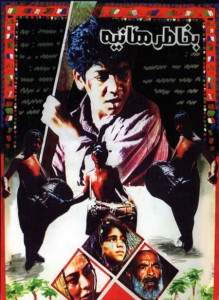
The skipper goes to the sea with 14 other man to catch fish. However, all execept the skipper are drowned and the people blame the skipper for the death of their dear ones. Meanwhile, Haniyeh, the skipper’s little daughter is paralysed and the skipper and his family leave Tangak for Bushehr…
Read More »
Tag Archives: Persian
Syngué sabour, pierre de patience / The Patience Stone (2012) Atiq Rahimi, Golshifteh Farahani, Hamid Djavadan, Hassina Burgan, Drama, War
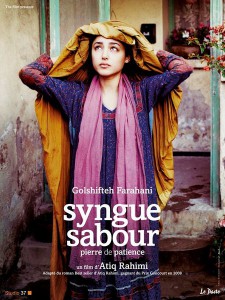
Author Atiq Rahimi’s adapts his own bestselling novel about a Muslim woman whose paralyzed husband unconsciously assumes the role of syngué sabour, which shields her from the sorrows of life in her war-torn village. Her unnamed Middle Eastern country caught up in the insurrection, the loyal, thirty-something wife faithfully sits watch over her vegetative husband, who has been all-but forgotten by his brothers and fellow Jihadists. Over time, she gathers the courage to tell her husband all of the things she had remained silent about during their 10 years of marriage. Throughout the course of their conversations, she speaks frankly of the disappointments, sorrows, and sacrifices that have made her life so difficult throughout the previous decade.
Read More »
The Wind Will Carry Us / Bad Ma Ra Khahad Bord (1999) Abbas Kiarostami, Behzad Dorani, Noghre Asadi, Roushan Karam Elmi, Drama
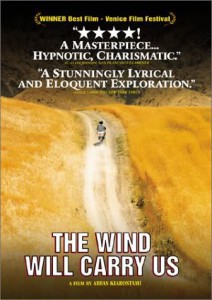
This idiosyncratic drama from Iran begins as a jeep winds through the hills of Kurdistan, containing an engineer (Behzad Dourani) and his two assistants (whom we never see) as they search for a small village in the mountains. When they arrive, they are greeted by a young boy, who shows them a place they can stay and guides the engineer to the home of an old woman (also never seen) who seems to be dying. No one is sure what the engineer and his men are doing there; some locals think he’s keeping watch of the old woman and wants to purchase her land when she dies, while others think he could be an archeologist searching for rare artifacts.
Read More »
Roozi ke zan shodam / The Day I Became a Woman (2000) Marzieh Makhmalbaf, Fatemeh Cherag Akhar, Hassan Nebhan, Shahr Banou Sisizadeh, Comedy, Drama
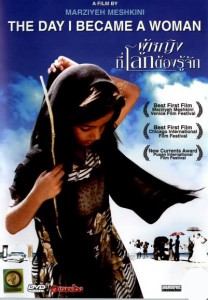
A film comprised of three interconnected vignettes that depict women at three stages of life in Iran. The first part centers on a young girl on her ninth birthday who is told that she can no longer play with the boys she had been playing with only the day before because she is now a woman. Told from the perspective of a 9-year-old girl who does not feel like or know what the word “woman” refers to, we see how devastatingly this affects both the girl and the boy with whom she had been friends. The second part is about a young woman who decides to enter a bicycle race against her husband’s wishes. As first, the husband and then increasing numbers of men from her village ride beside her on horseback to convince her to return home. The race begins to symbolize a freedom that she desperately wants from the limitations that have been placed on her. Finally, the third part shows us an old woman who has come into some money and is now free to do what she wants.
Read More »
Tadjrebeh / The Experience (1973) Abbas Kiarostami, Parviz Naderi, Hossein Yarmohammadi
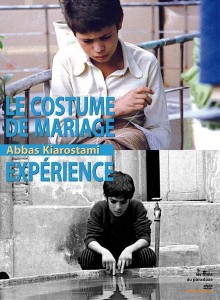
Earning his keep at a photography studio where he also sleeps, an orphan aspires to be closer to the object of his affection, an older girl from a higher social class.
Read More »